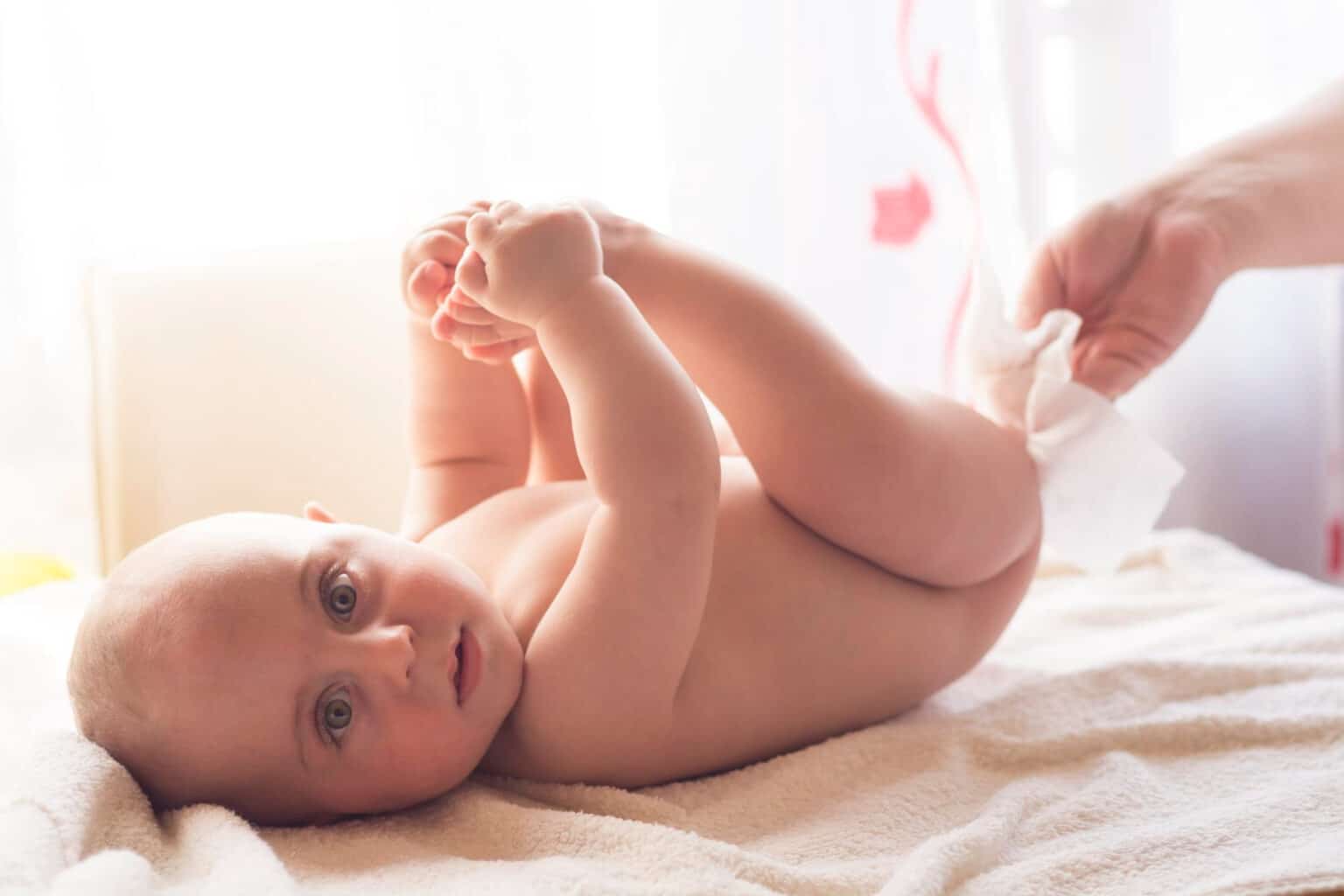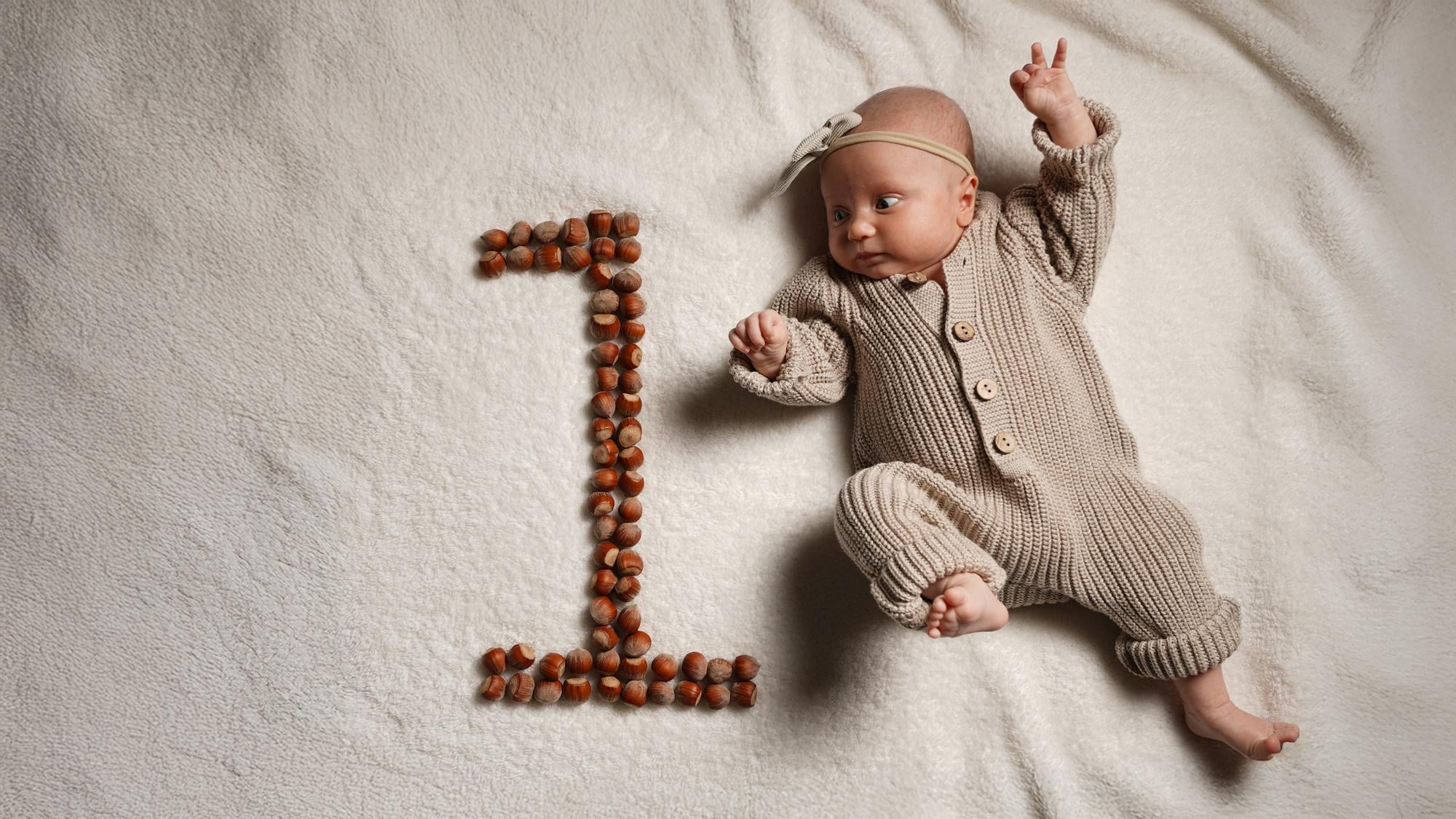Bringing a new baby into the world is an exciting and joyful experience. But along with the cuddles and coos, there's also a whole new world of diapers and, yes, baby poop! Don't worry, it's completely normal to have questions about what's going on in those diapers. This comprehensive guide will provide you with all the information you need to navigate the world of baby poop with confidence.
Decoding the Diaper: Types of Baby Poop
Baby poop comes in a surprising variety of colors and consistencies, and these can change depending on your baby's age and diet. Poop color can be one way to keep track of a baby's health, so it's important to pay attention to those diaper changes1! Here's a rundown of what to expect:
- Meconium: This is your newborn's very first poop. It's a greenish-black, sticky, and tar-like substance that's made up of things your baby ingested while in the womb. Meconium is usually passed within the first 24 to 48 hours after birth2.
- Breastfed Poop: Typically, this is yellow, soft, and seedy. It often has a sweet smell (yes, really!). The color can range from mustard yellow to greenish-yellow2.
- Formula-Fed Poop: This tends to be thicker and more paste-like than breastfed poop. The color is usually tan or brown. It also has a stronger odor2.
- Solid Food Poop: Once your baby starts solids (around 6 months), their poop will become more formed and have a stronger odor. The color will vary depending on the foods they're eating2.
Important Note: Any time a newborn's poop becomes progressively more watery or outpaces feeding frequency, it's time to seek medical advice5. While a wide range of colors and textures are normal for baby poop, there are a few instances where you should contact your pediatrician:
- White, gray, or chalky poop: This could indicate a liver problem2.
- Red or bloody poop: This could be a sign of a milk protein allergy, an infection, or bleeding in the digestive tract2.
- Black poop (after the meconium stage): This could indicate bleeding in the stomach3.
How Often Should a Newborn Poop?
The frequency of baby poop can vary greatly. Monitoring a baby's bowel movements is a helpful way to check on their nutrition and overall health10. In the first few days, newborns may poop after every feeding11. By the end of the first week, they may have as many as 5 to 10 bowel movements a day11. After six weeks, the frequency may decrease to as little as once a week12. Some breastfed babies may only poop once a week. That's fine as long as your baby's stools are soft and the baby keeps gaining weight and nursing9.
Here's a general guideline for how often you can expect your baby to poop:
- Days 1-3: Newborns will pass meconium within 24-48 hours after birth.
- First 6 weeks: Breastfed babies may have at least 3 bowel movements per day, but some may have up to 4-12. Formula-fed babies typically have at least 1-4 bowel movements per day.
- After the first month: Breastfed babies may only poop every few days. Formula-fed babies may only pass stool every other day13.
Important Note: Breastfed babies tend to poop more frequently than formula-fed babies. This is because breast milk is more easily digested12. As long as your baby seems comfortable, is healthy and growing, and the stools aren't hard, infrequent bowel movements are usually not a cause for concern11.
When to Worry: Constipation
Constipation is when your baby's poop is hard and dry, making it difficult to pass. This is more common in formula-fed babies14. Signs of constipation include:
- Infrequent bowel movements
- Straining and crying while pooping
- Hard, pellet-like stools
- Blood in the stool (from straining) 14
Nearly 95 percent of constipation, while a nuisance, is not caused by an underlying medical condition. This is called functional constipation15. If you think your baby is constipated, talk to your pediatrician. They may recommend:
- Adding fluids: Offer extra water or, for babies older than 1 month, a small amount of fruit juice like apple or pear juice16.
- Increasing fiber: For babies who have started solids, add more fiber to their diet with foods like prunes, pears, beans, and peas16.
- Gentle massage: Gently rubbing your baby's tummy can help stimulate their bowels14.
- Bicycle legs: Gently move your baby's legs as if they were riding a bicycle16.
When to Worry: Diarrhea
Diarrhea is when your baby has frequent, watery stools. It can be caused by:
- Viral infections
- Bacterial infections
- Antibiotics
- Food allergies
- Changes in diet 18
Diarrhea can lead to dehydration, which is especially dangerous for babies. Signs of dehydration include:
- Fewer wet diapers than usual
- Dry mouth
- No tears when crying 18
- Forceful vomit 20
If you suspect your baby has diarrhea, contact your pediatrician, especially if your baby is under 3 months old or has any signs of dehydration19.
Blood in Baby's Stool
While seeing blood in your baby's diaper can be alarming, it's often harmless. Common causes of blood in baby stool include:
- Anal fissures: Small tears in the skin around the anus, often caused by constipation.
- Milk protein allergy: An allergic reaction to proteins in cow's milk.
- Maternal blood: If you're breastfeeding and have cracked nipples, your baby may ingest some of your blood22.
However, blood in the stool can sometimes indicate a more serious issue, such as a bacterial infection or bleeding in the digestive tract25. It's important to contact your pediatrician if you notice blood in your baby's stool, especially if it's accompanied by other symptoms like diarrhea, fever, or vomiting.
Soothing Diaper Rash
Diaper rash is a common skin irritation that can cause redness, bumps, and discomfort in the diaper area. It's often caused by prolonged contact with urine or stool. Here's how to deal with diaper rash:
- Keep it clean and dry: Change diapers frequently and clean your baby's bottom gently with warm water and a soft washcloth. Avoid using wipes that contain alcohol or fragrances27.
- Let it air dry: Allow your baby's skin to air dry completely before putting on a new diaper28.
- Apply a barrier cream: Use a thick layer of diaper rash cream containing zinc oxide or petroleum jelly to protect the skin28.
- Go diaper-free: When possible, let your baby spend some time without a diaper to allow the skin to heal29.
Introducing Solids and Poop Changes
Around 6 months of age, most babies are ready to start solid foods32. This dietary change can affect your baby's poop in a few ways:
- Thicker consistency: Poop will become more formed and less runny34.
- Darker color: The color may become darker brown or even greenish34.
- Stronger odor: Be prepared for a more pungent smell34.
- Undigested food: You might see bits of undigested food in your baby's diaper35.
Introducing solids can also sometimes cause constipation or diarrhea as your baby's digestive system adjusts34. If you notice these issues, talk to your pediatrician. They may recommend offering more fluids, adjusting the types of solids you're giving, or, in some cases, trying a small amount of prune juice36.
Potty Training: When to Expect It
Most children start potty training between 18 and 24 months of age, but some may not be ready until closer to 3 years old39. Studies show that many children who begin potty training before 18 months aren't completely trained until after the age of 4, while children who don't start training until around the age of 2 are likely to be fully potty trained before they turn 341. The average length of time it takes toddlers to learn the process is about six months42.
To help your child learn to use the potty, start by teaching them what a potty chair is. Let them play with it for a few days to get comfortable43. Here are some signs that your child might be ready for potty training:
- Awareness of bodily functions: They show signs of knowing when they need to pee or poop.
- Physical ability: They can walk to the potty, sit on it, and pull their pants up and down.
- Communication: They can understand and follow instructions.
- Interest in the potty: They show curiosity about the toilet or potty41.
When you start potty training, remember to be patient and consistent. Accidents will happen, but with positive reinforcement and a supportive approach, your child will eventually master this skill44.
Conclusion: Observation, Communication, and Trust
Understanding your baby's poop can provide valuable insights into their health and well-being. From those first sticky meconium diapers to the changes that come with introducing solids, baby poop tells a story. By observing your baby's poop, you can gain a deeper understanding of their digestion, nutrition, and overall health.
Remember that every baby is different, and what's normal for one may not be normal for another. If you have any concerns about your baby's poop, don't hesitate to reach out to your pediatrician. They can offer personalized guidance and address any questions you may have.
Above all, trust your instincts. As a parent, you know your baby best. By combining observation, communication with your healthcare provider, and a healthy dose of parental intuition, you can navigate the world of baby poop with confidence and ensure your little one's well-being.











